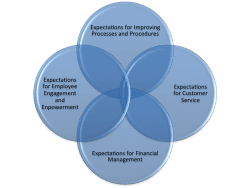Managing AI Through Effective Policies
Cities around the country are increasingly leveraging artificial intelligence (AI) to enhance urban living, improve operational efficiency, and tackle complex challenges. From smart traffic management systems that reduce congestion to AI-powered predictive maintenance for infrastructure, these technologies are revolutionizing how cities function. Governments and city planners use AI to analyze vast amounts of data, enabling more informed decision-making in areas such as public safety, healthcare, energy use, and waste management.
However, the integration of AI also raises concerns around privacy, equity, and governance, prompting cities to adopt thoughtful strategies to manage its use and responsibly. As city’s continue to grow, AI offers transformative potential to make cities more sustainable, resilient, and livable. Here are some best practices for local government use of AI and how policy implementation plays a critical role in ensuring its effectiveness.
1. Transparency and Accountability
Explainability: Ensure AI decisions are transparent. Local governments should be able to explain how AI models reach their conclusions, especially for critical decisions like resource allocation or law enforcement.
Accountability Framework: Establish clear accountability for AI outcomes. Governments should outline who is responsible when AI systems fail or produce biased outcomes.
Public Communication: Inform citizens about the use of AI and its potential benefits and risks. Regularly engage the public to maintain trust.
2. Data Privacy and Security
Data Governance: Implement strong data governance frameworks to manage and protect the data used by AI systems, especially sensitive personal information.
Compliance with Privacy Laws: Ensure that AI applications comply with local, state, and national data protection regulations.
Secure Infrastructure: Protect AI systems and the data they use from cyberattacks, ensuring security throughout the data lifecycle.
3. Bias and Fairness
Bias Audits: Regularly audit AI models for biases, especially those that may disproportionately affect certain demographic groups.
Inclusive Data: Use diverse and representative datasets to train AI models. Avoid datasets that reinforce historical biases or exclusions.
Equity Impact Assessments: Conduct assessments to evaluate the potential impact of AI applications on marginalized communities.
4. Ethical Use
AI Ethics Framework: Develop and adhere to an ethical framework for AI use, aligned with local values and societal goals. This can help in addressing issues like surveillance or predictive policing.
Ethical AI Committees: Establish independent committees to review AI projects and ensure they align with ethical guidelines.
5. Collaboration and Stakeholder Engagement
Community Input: Engage residents, local businesses, and civil society groups in discussions about how AI is used, particularly in areas that affect public services like housing, healthcare, and education.
Interdepartmental Collaboration: Encourage collaboration between departments, including IT, legal, and service agencies, to ensure AI is implemented with broad oversight and expertise.
6. Skill Development and Capacity Building
Training for Government Staff: Equip local government employees with the skills and knowledge to understand, implement, and manage AI tools.
Citizen Education: Develop programs to educate the public about AI, helping residents understand how it is being used and its implications.
7. Pilot Programs and Gradual Implementation
Start Small: Implement AI in pilot projects before scaling up. Use these smaller initiatives to test and refine AI models while minimizing risks.
Evaluation Metrics: Establish clear metrics for success and failure, and regularly evaluate AI initiatives based on these criteria.
8. Regulatory and Legal Considerations
AI Policy and Guidelines: Develop local regulations or guidelines to govern AI use, ensuring it aligns with broader legal frameworks and public expectations.
Contractual Clauses with Vendors: Ensure AI vendors meet ethical and technical standards. Include clauses in contracts that require ongoing monitoring and transparency from third-party vendors.
9. Sustainability and Long-term Impact
Long-term Planning: Consider the long-term effects of AI adoption, including potential impacts on jobs and economic inequality.
Environmental Impact: Evaluate the environmental footprint of AI technologies and encourage the use of energy-efficient models.
10. Public Service Efficiency and Innovation
Citizen-Centric AI: Use AI to enhance the citizen experience by improving services like transportation, waste management, emergency response, and more. Automate routine tasks to free up resources for more complex services.
Data-Driven Decision Making: Use AI to analyze data for better decision-making in areas like urban planning, disaster preparedness, and public health.
Developing and Implement AI Policy Checklist
1. Assessment Phase
Understand AI Applications:
Identify potential areas where AI can benefit city operations (e.g., traffic management, public safety, waste management).
Evaluate existing AI usage and its impact.
Stakeholder Engagement:
Consult with local government departments, businesses, academia, and community organizations.
Involve residents to gather diverse perspectives and address public concerns.
Resource and Capability Audit:
Assess current technological infrastructure.
Identify skill gaps in AI expertise within the city administration.
2. Policy Design
Establish Guiding Principles:
Ensure policies are aligned with values like transparency, fairness, privacy, accountability, and inclusivity.
Commit to compliance with national or international AI regulations and standards.
Define Goals and Objectives:
Set clear goals for how AI will address city-specific challenges.
Balance innovation with ethical considerations.
Risk Assessment Framework:
Identify potential risks, including bias, security vulnerabilities, and social impacts.
Develop mitigation strategies for high-risk applications.
Create Ethical Guidelines:
Mandate fairness, non-discrimination, and inclusivity in AI algorithms.
Incorporate privacy-by-design and data protection standards.
3. Implementation
Develop a Governance Structure:
Establish a dedicated AI oversight committee or task force.
Define roles and responsibilities for departments involved in AI implementation.
Set Up Pilot Programs:
Start with small-scale AI deployments to test feasibility and impact.
Collect feedback and refine processes before full-scale implementation.
Procurement Policies:
Establish criteria for acquiring AI tools and services, emphasizing ethical and secure solutions.
Partner with trusted vendors and ensure adherence to city standards.
4. Monitoring and Evaluation
Continuous Monitoring:
Implement systems to monitor AI systems for accuracy, fairness, and unintended consequences.
Regularly audit AI systems for compliance with policies.
Performance Metrics:
Define KPIs to evaluate the effectiveness of AI applications (e.g., cost savings, efficiency improvements, user satisfaction).
Feedback Mechanisms:
Create channels for residents to report issues or concerns about AI use.
Use feedback to improve systems and policies.
5. Community Engagement and Education
Transparency Initiatives:
Publish AI policies, applications, and updates in accessible formats.
Explain how AI decisions impact residents.
Public Education:
Host workshops or online resources to help residents understand AI technologies.
Promote digital literacy to reduce barriers in AI adoption.
6. Long-Term Strategy
Adaptability and Scalability:
Update policies to keep pace with evolving AI technologies and regulations.
Plan for scalability in successful AI programs.
Collaborations:
Partner with other cities, research institutions, and international organizations to share best practices.
Sustainability Goals:
Leverage AI to contribute to environmental sustainability and resilience.
City of Seattle, WA AI Policy
The City of Seattle has adopted the following principles regarding AI systems in general. These principles describe general codes of conduct that represent the City’s values and are aligned with our responsibilities to the residents we serve. These principles serve to guide City employees in their use of both generative and traditional AI technology.
Innovation and Sustainability: The City values public service innovation to meet our residents’ needs. We commit to responsibly explore and evaluate AI technologies, which will improve our services and advance beneficial outcomes for both people and the environment.
Transparency and Accountability: The City values transparency and accountability and understands the importance of these values in our use of AI systems. The City will ensure that the development, use, and deployment of AI systems are evaluated for and compliant with all laws and regulations applicable to the City prior to use and will make documentation related to the use of AI systems available publicly.
Validity and Reliability: The City will work to ensure that AI systems perform reliably and consistently under the conditions of expected use, and that ongoing evaluation of system accuracy throughout the development and/or deployment lifecycle is managed, governed, and auditable, to the greatest extent possible.
Bias and Harm Reduction and Fairness: We acknowledge that AI systems have the potential to perpetuate inequity and bias resulting in unintended harms on Seattle residents. The City will evaluate AI systems through an equity lens, in alignment with our Race and Social Justice commitments, for potential impacts such as discrimination and unintended harms arising from data, human, or algorithmic bias to the extent possible.
Privacy Enhancing: The City values data privacy and understands the importance of protecting personal data. We work to ensure that policies and standard operating procedures that reduce privacy risk are in place, and are applied to the AI system throughout development, testing, deployment, and use to the greatest extent possible.
Explainability and Interpretability: The City understands the importance of leveraging AI systems, models, and outputs that are easily interpreted and explained. We work to ensure all AI systems and their models are explainable to the extent possible, and that system outputs are interpretable and communicated in clear language, representative of the context for use and deployment.
Security and Resiliency: Securing our data, systems, and infrastructure is important to the City. We will ensure AI systems are evaluated for resilience and can maintain confidentiality, integrity, and availability of data and critical City systems, through protection mechanisms to minimize security risks to the greatest extent possible, in alignment with governing policy and identified best practices.
AI is transforming how local governments operate, offering more responsive, efficient, and personalized services to citizens and by adopting these best practices, local governments can harness the potential of AI while maintaining public trust, ensuring ethical use, and promoting transparency. AI is rapidly becoming an indispensable tool for local governments to improve services, manage resources, and enhance urban living conditions. However, it also requires careful planning to address ethical, social, and operational challenges.




